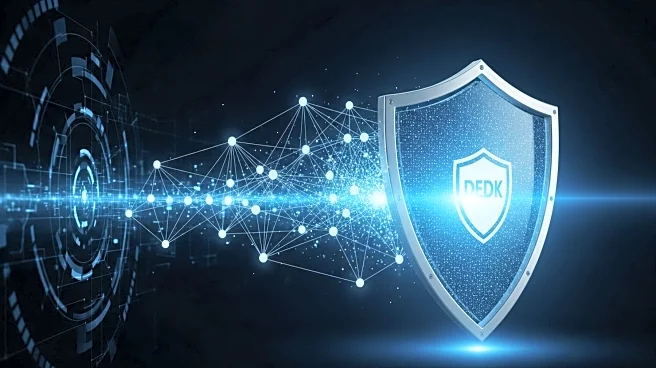What's Happening?
A recent survey by Gartner indicates that 62% of organizations have experienced deepfake attacks in the past year. These attacks are primarily used in social engineering schemes to impersonate executives and deceive employees into transferring money. The survey also found that 32% of entities faced attacks on AI applications, where adversarial prompts were used to manipulate outputs. Akif Khan from Gartner Research highlights the challenge of relying solely on automated defenses, as employees are often the first line of defense against such sophisticated attacks. Organizations are encouraged to adopt a defense-in-depth strategy to mitigate these threats.
Why It's Important?
The prevalence of deepfake attacks underscores the growing sophistication of cyber threats and the need for robust security measures. As technology evolves, traditional defenses may become inadequate, necessitating a comprehensive approach that includes security awareness training and AI-powered solutions. The impact on organizations can be significant, with potential financial losses and reputational damage. This trend highlights the importance of investing in cybersecurity and educating employees to recognize and respond to these threats effectively.
What's Next?
Organizations are likely to increase their focus on cybersecurity measures, including AI-powered security awareness training to enhance their defenses against social engineering attacks. As deepfake technology continues to advance, companies may need to implement more sophisticated detection and prevention systems. Collaboration between industry leaders and cybersecurity experts will be crucial in developing effective strategies to combat these emerging threats.
Beyond the Headlines
The rise of deepfake attacks raises ethical and legal questions about the use of AI in cybercrime. As these technologies become more accessible, there is a growing need for regulations and standards to prevent misuse. Additionally, the psychological impact on employees who are targeted by such attacks should not be overlooked, emphasizing the importance of support systems and training to build resilience.









